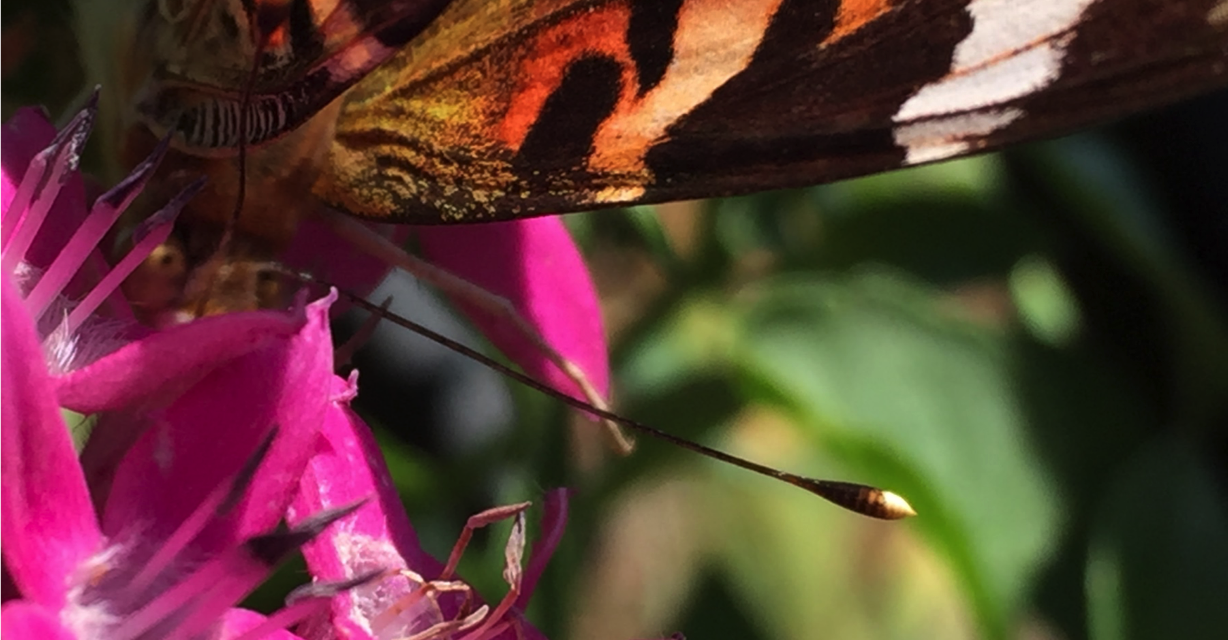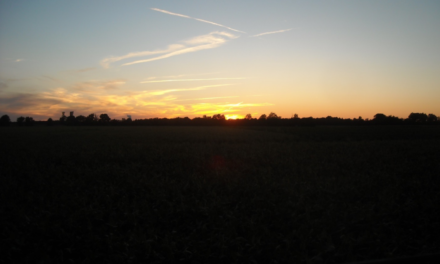Did you get any butterfly time last summer? My happiest moments of the gardening season were time spent on my front patio with the kaleidoscope of butterflies. The other names for a group of butterflies are a swarm, flitter, flutter, or rabble, but I like the kaleidoscope name for a group of butterflies best!
 I placed a large pot of summer flowers onto the wrought iron bench and spent time basking in the sunshine, which the butterflies and I liked while getting a close look at the activity of my new friends. I remember feeling so grateful that I had planned last spring and planted more flowers and herbs that attracted beneficial pollinators.
I placed a large pot of summer flowers onto the wrought iron bench and spent time basking in the sunshine, which the butterflies and I liked while getting a close look at the activity of my new friends. I remember feeling so grateful that I had planned last spring and planted more flowers and herbs that attracted beneficial pollinators.
There are three main types of butterflies in our area: moths, true butterflies, and skippers. Have you ever heard of a skipper outside of the S.S. Minnow before?
Why do we need to tell them apart? Biologically speaking, they are all part of the order of Lepidoptera, a family of insects, but if you divide them into superfamilies, they go to different branches of the family tree. So just like in families, they may seem alike but their genes are very different, and as you will see, even in appearances, there are many distinctions.
While they all fly around the flowers and garden plants looking for nectar and pollinating as they flitter from bloom to bloom, moths are usually nocturnal while butterflies and skippers fly during the day. Moths can be much larger than butterflies. I’ll never forget seeing a green Luna moth as a child and how unusual, but beautiful it was.
The resting position of the three is different also: true butterflies close their wings vertically over the back while moths may wrap their wings around their bodies, fold them tent-like over the back or extend them at their sides. Skippers hold their wings at more open at an angle. Butterflies are pretty! They have brightly colored full wings while skippers have short, triangular wings and are more often shades of orange, brown, black or gray. Moths represent features of both butterflies and skippers.
 This white Allium was covered with all kinds of skippers and butterflies and a strange bug in the center of the photo. I am so glad I planted some summer flowering bulbs.
This white Allium was covered with all kinds of skippers and butterflies and a strange bug in the center of the photo. I am so glad I planted some summer flowering bulbs.
Why bother with butterflies? Albert Einstein said, “If the bee disappears from the surface of the Earth, man would have no more than four years to live.” “No more bees, no pollination….no more men!” It is concerning how many bees, butterflies, and beneficial bugs we are losing. The encouraging note is that we can make a difference by planting gardens that will attract and nurture them.
Be blessed! Anne May






